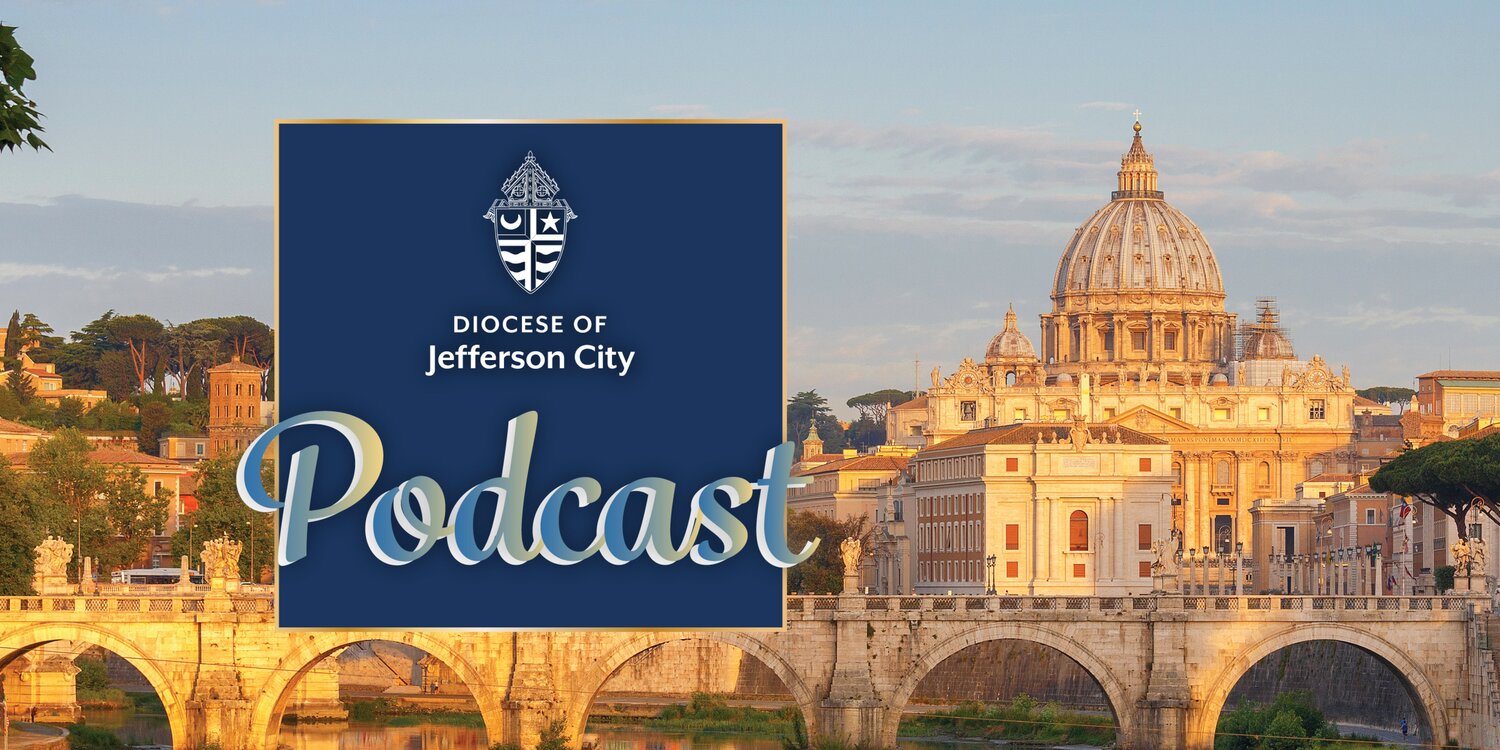Bishop McKnight gives perspective on Vatican declaration on pastoral meaning of blessings

Sometimes, it’s not just what is said that matters.
It’s how it’s said.
That was one of the points Bishop W. Shawn McKnight made in a discussion on a recent Vatican declaration titled “Fiducia Supplicans: On the Pastoral Meaning of Blessings.”
This document, released Dec. 18 by the Holy See’s Dicastery for the Doctrine of the Faith, has drawn widespread attention for how it describes blessings of same-sex couples.
It has also led to some confusion.
Bishop McKnight recently shared some thoughts on the document and encouraged the diocesan communications director to share those thoughts with the people of the diocese.
Portions of the discussion were assembled into a Podcast for the Diocese of Jefferson City, titled “Understanding Fiducia Supplicans,” and released Dec. 22.
It can be found online at: diojeffcity.org/podcast
Bishop McKnight noted that some of the confusion about the document comes from a tendency in the English language to equate a blessing with approval.
“That’s not what the Holy See is talking about in this latest document,” the bishop stated.
He pointed out that the authors of the document go to great lengths to explain what they mean by blessing — “that there are liturgical blessings, official blessings, blessings that have rites that deacons or priests have to follow — and that’s not what they’re talking about here.
“It’s more of the general sense of blessing, of asking a priest to pray for them,” the bishop said.
He spoke of how priests and deacons often receive requests for a blessing, such as in a time of difficulty or before leaving on a journey.
(That blessing) “is not intended in any way to validate or give approbation or approval — even though our English use of ‘blessing’ sometimes has that sense,” the bishop said.
The document itself makes no change whatsoever to doctrine or Church teaching.
Nonetheless, Bishop McKnight believes “Fiducia Supplicans” does call the Church and its ordained ministers to look at some challenging subjects through a different set of eyes.
Namely, “What do we look like in terms of people who are not perfect and are in imperfect situations?” he stated.
In that way, rather than changing what the Church believes or teaches, the document is about “holding to what we believe.”
“We believe in Jesus Christ, who became one of us, who died for us, so that all might have life — not just some,” the bishop said.
The Church has always recognized that people who might not be in an ideal situation do want help for their spiritual life.
“We can pray for that,” the bishop stated. “You do not have to be perfect in order to get a blessing from a priest.”
Bishop Mc-Knight believes an important key to understanding this and other efforts by Church leaders to address difficult and uncomfortable topics is the desire to lead people into a relationship with Christ.
That relationship changes everything.
“So, (“Fiducia Supplicans” is) really helping us to be more faithful to Jesus in how we treat others,” the bishop said.
He encourages everyone with questions about the “Fiducia Supplicans” to pull up the document and read it for themselves.
A link to it can be found on the diocesan website at diojeffcity.org.
He said the document is “in many ways quite a beautiful description of what a blessing is and how we use the term.”
“Fundamentally, blessing is about us praising God and invoking God’s graces and assistance upon us,” the bishop noted.
The Eucharist, he said, “is the greatest and most supreme blessing that we have — where we as human beings praise God and in so doing, God blesses us.
“We should be encouraging everyone to want to join us,” he stated. “And how we do that and the tack that we use is very important.”
Comments
Other items that may interest you
Services
The Catholic
Missourian
2207 W. Main St.
Jefferson City MO 65109-0914
(573) 635-9127
editor@diojeffcity.org






